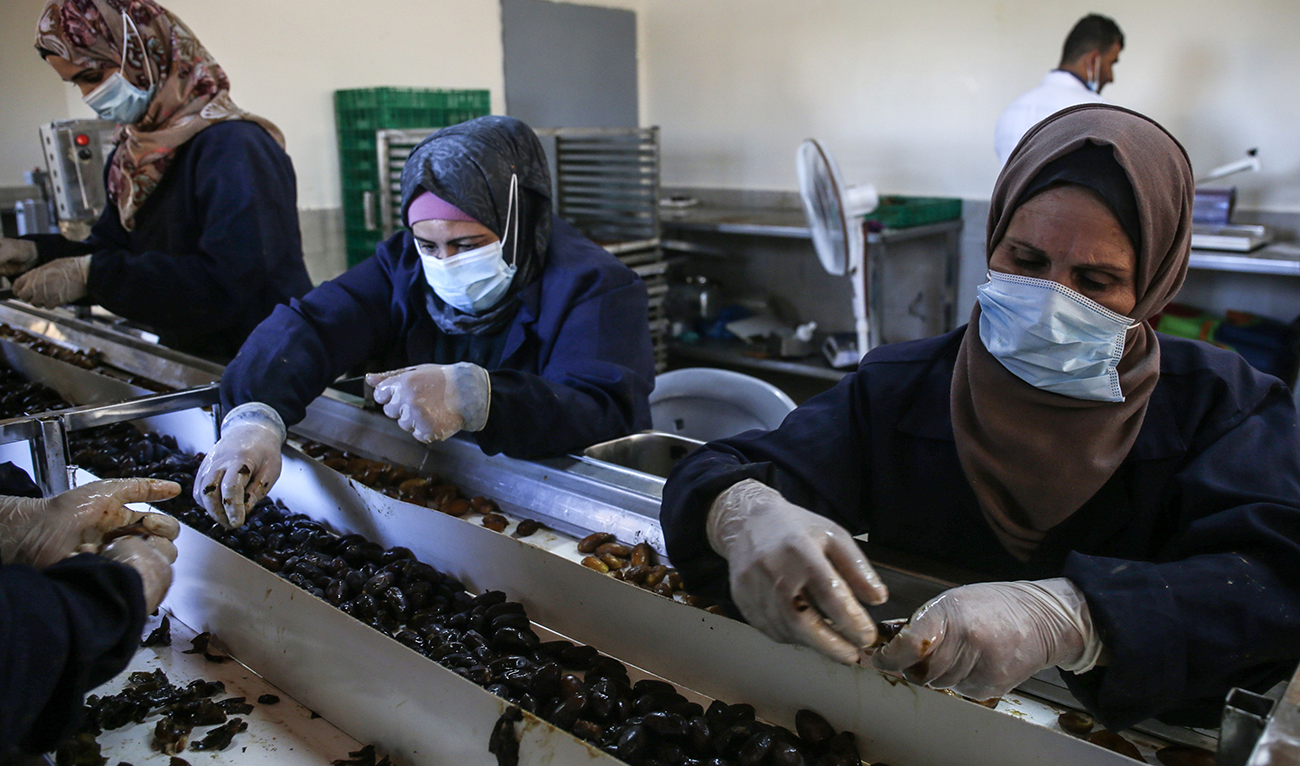Palestinian Authority’s financial crisis ‘could come to end next month’
GAZA CITY: A union leader has urged striking West Bank teachers to “be patient with the government” amid assurances that the Palestinian Authority’s (PA) ongoing financial crisis could soon be resolved.
Secretary-General of the Teachers Union Saed Erzikat has warned that worker representatives would “not be able to protect any teacher” taking part in unauthorized industrial action from the prospect of arrest.
Teachers from a number of schools in Hebron and the West Bank have been staging protests after having only received part of their monthly salaries since May.
PA finances have been hard hit as a result of its fractious relationship with Israel and the US over what it describes as “plans to liquidate the Palestinian cause.”
Five months ago, the PA found itself unable to meet its monthly financial obligations, most notably the payment of wages, after it stopped receiving tax revenues on goods entering Palestinian territories, collected by Israel on its behalf. The taxes are estimated to make up more than 60 percent of the PA’s income.
A number of teachers were arrested after taking part in strikes, which union officials have distanced themselves from.
Erzikat said that the union was in constant contact with the PA on the issue of salary payments adding that the financial crisis would come to an end next month. But the official warned that the union would “not be able to protect any teacher, and all teachers must abide by the attendance at their schools.”
However, so-called United Teachers’ Movement protesters described the union as a “government front that does not care about teachers.”
Teacher and activist Khaled Shabita, who was one of those arrested, said teachers had a right to peacefully strike and it was wrong of the PA to question their “patriotism” for taking part in industrial action.
“We want a free country, and we want a decent life. Employees face a difficult choice. Do they not have the right to live in dignity, just as much as having the right to fight for the freedom of their country from occupation?” he told Arab News.
Palestinian Prime Minister Mohammed Ishtayeh, previously told public servants, “do you want a homeland or money?”
Education affairs writer, Ismail Muslimani, said workers, including teachers, had the right to strike. “The scene has become complicated and the scale of the tragedy is great, and the employee is not obliged to pay the price of failed policies,” he added.
International mediation efforts are reportedly underway to get a resumption of tax income for the PA. The authority’s monthly salary bill is about 550 million Israeli shekels ($162 million) for about 136,000 employees in the West Bank and Gaza Strip.
Average monthly government expenditure would normally be expected to top 1.1 billion shekels.
Economist Ayman Abu Aisha said: “If the Palestinian Authority succeeds in obtaining an Arab loan, then it will not need the tax revenues that are collected by Israel, but if it does not succeed, then the option of receiving the revenues will be its last resort to solve its financial crisis.”

UNRWA appreciates Saudi Arabia’s support for Palestinian refugees‘No collapse’ of Palestinian Authority says minister despite strong UN warning



